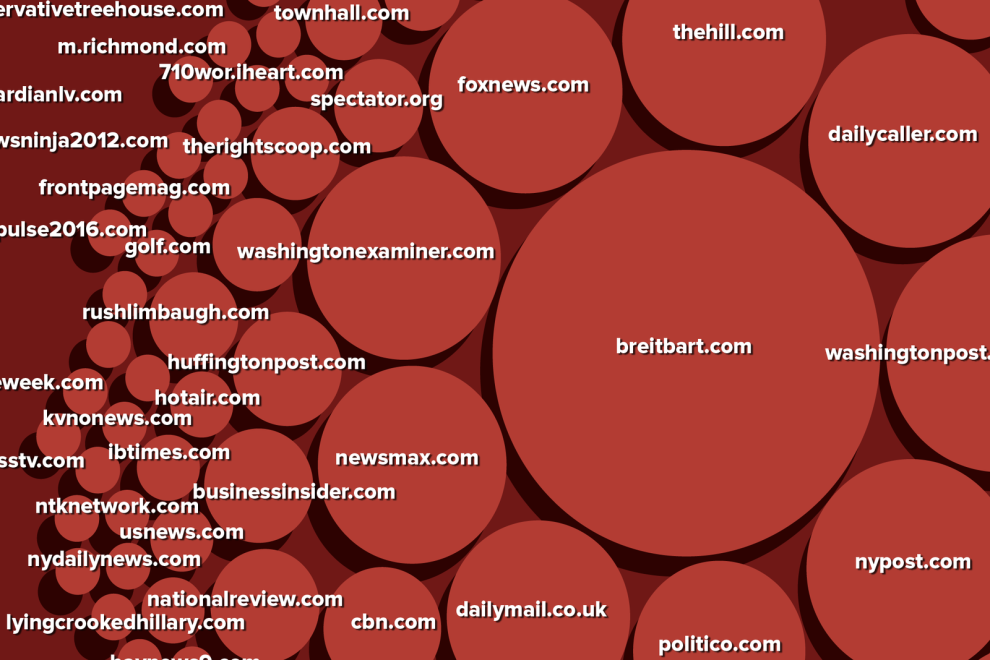Peter Thiel is the only prominent Silicon Valley figure to publicly support Trump during the election campaign. He famously spoke at the Republican Convention. This is what he said:
Good evening. I’m Peter Thiel. I build companies and I’m supporting people who are building new things, from social networks to rocket ships. I’m not a politician. But neither is Donald Trump. He is a builder, and it’s time to rebuild America.
Where I work in Silicon Valley, it’s hard to see where America has gone wrong. My industry has made a lot of progress in computers and in software, and, of course, it’s made a lot of money. But Silicon Valley is a small place. Drive out to Sacramento, or even just across the bridge to Oakland, and you won’t see the same prosperity. That’s just how small it is.
Across the country, wages are flat. Americans get paid less today than ten years ago. But healthcare and college tuition cost more every year. Meanwhile Wall Street bankers inflate bubbles in everything from government bonds to Hillary Clinton’s speaking fees. Our economy is broken. If you’re watching me right now, you understand this better than any politician in Washington D.C.
And you know this isn’t the dream we looked forward to. Back when my parents came to America looking for that dream, they found it right here in Cleveland. They brought me here as a one-year-old and this is where I became an American. Opportunity was everywhere. My dad studied engineering at Case Western Reserve University, just down the road from where we are now. Because in 1968, the world’s high tech capital wasn’t just one city: all of America was high tech.
It’s hard to remember this, but our government was once high tech, too. When I moved to Cleveland, defense research was laying the foundations for the internet. The Apollo program was just about to put a man on the moon–and it was Neil Armstrong, from right here in Ohio. The future felt limitless.
But today our government is broken. Our nuclear bases still use floppy disks. Our newest fighter jets can’t even fly in the rain. And it would be kind to say the government’s software works poorly, because much of the time it doesn’t even work at all. That is a staggering decline for the country that completed the Manhattan project. We don’t accept such incompetence in Silicon Valley, and we must not accept it from our government.
Instead of going to Mars, we have invaded the Middle East. We don’t need to see Hillary Clinton’s deleted emails: her incompetence is in plain sight. She pushed for a war in Libya, and today it’s a training ground for ISIS. On this most important issue Donald Trump is right. It’s time to end the era of stupid wars and rebuild our country. When I was a kid, the great debate was about how to defeat the Soviet Union. And we won. Now we are told that the great debate is about who gets to use which bathroom. This is a distraction from our real problems. Who cares?
Of course, every American has a unique identity. I am proud to be gay. I am proud to be a Republican. But most of all I am proud to be an American. I don’t pretend to agree with every plank in our party’s platform; but fake culture wars only distract us from our economic decline, and nobody in this race is being honest about it except Donald Trump.
While it is fitting to talk about who we are, today it’s even more important to remember where we came from. For me that is Cleveland, and the bright future it promised. When Donald Trump asks us to Make America Great Again, he’s not suggesting a return to the past. He’s running to lead us back to that bright future.
Tonight I urge all of my fellow Americans to stand up and vote for Donald Trump.
What’s intriguing about that speech is that — except for its endorsement of Trump — it could have been written by thousands of other critics of the neoliberal elites who have misgoverned the US (and other countries) since the 1980s. I agree with most of it — as did Larry Lessig.
“What’s striking about this speech”, Lessig writes, “is, except for its references to Trump”,
how obviously true it is. Something has gone wrong in America. Growth is not spread broadly. Technical innovation is not spread broadly. We were a nation that tackled real and important problems. We have become a nation where — at least among politicians — too much time is spent arguing over the petty. “Who cares?” about which bathroom someone uses — which coming from a gay libertarian must mean, “it’s none of your business.” The wars of the last generation were stupid. We need to focus on building a “bright future” that all of America can share in.
What’s puzzling about this speech is how this brilliant innovator could predicate these words of a Donald Trump presidency. Maybe the excuse is that they were written before the true insanity of that man became unavoidably obvious. Who knows?
Thiel is a really interesting and complicated guy. He’s a born contrarian, but with a genius for making good bets. (The first was PayPal, of which he was a co-founder; another was Facebook, in which he was the first major investor). His book, Zero to One is simultaneously a fascinating and irritating read. He infuriates — and terrifies — journalists because of the way he used his wealth to pursue, and eventually destroy, Gawker. In achieving that he demonstrated that anyone who is sufficiently rich and sufficiently vengeful can render toothless the First Amendment.
As I said, Thiel has a talent for making big, contrarian bets. With the 20/20 vision of hindsight, it looks as though his gamble on Trump has paid off. At any rate, the New York Times now reports that he has become a key player in Trump’s transition team. So he is probably the person behind Trump’s decision to ‘summon’ the leaders of the big tech companies to a meeting at Trump Tower. “The agenda”, says the Times,
is undisclosed and perhaps still under consideration, but it is unlikely to produce the sort of love fest that existed between President Obama and Silicon Valley. Tech culture celebrates disruption as the tool that produces a better future for all. Many of Donald J. Trump’s supporters, on the other hand, see it as pushing them down.
How to reconcile these views is the task of Peter Thiel, the billionaire investor and Facebook board member whose role is to formulate a tech policy for the new administration. Mr. Thiel secured this position by making a contrarian bet on Mr. Trump’s candidacy, which paid off. The round-table invitations are from Mr. Thiel; Jared Kushner, Mr. Trump’s son-in-law; and Reince Priebus, the incoming chief of staff.
It’s not clear at the time of writing how many of the Valley’s billionaire geeks will roll up. My hunch — knowing the aphrodisiac effect of power — is that most of them will, though some will sneak in via the service entrance.
UPDATES * Kara Swisher is claiming that Tim Cook (Apple), Larry Page (Google), Sheryl Sandberg (Facebook) and perhaps Jeff Bezos (Amazon) are planning to obey the call. * Scott Rosenberg has some stirring advice on what they should tell the Troll-in-Chief.


